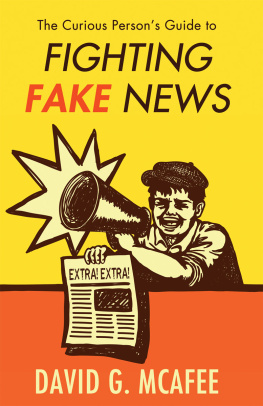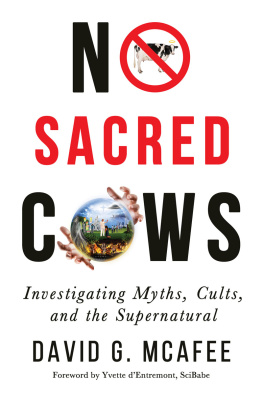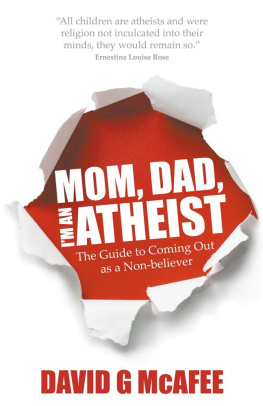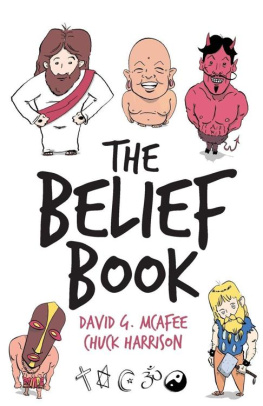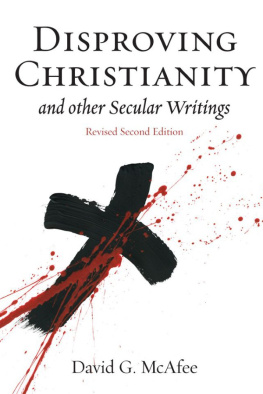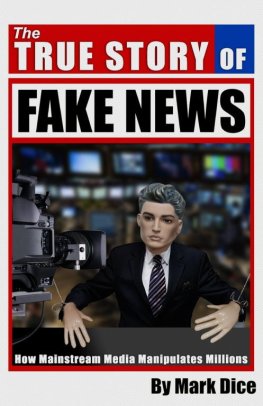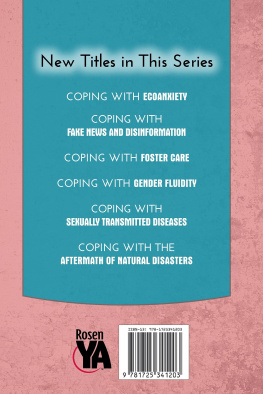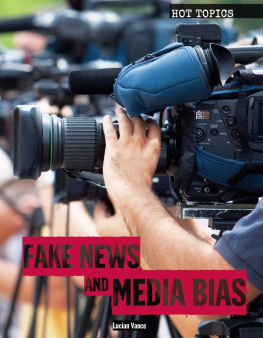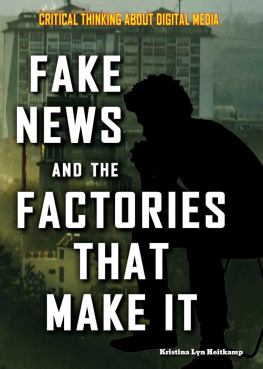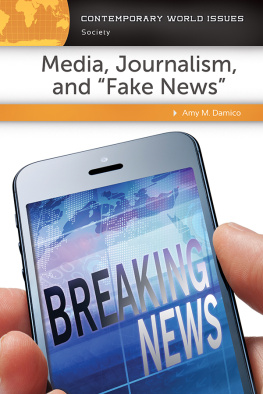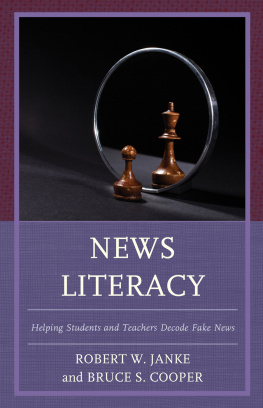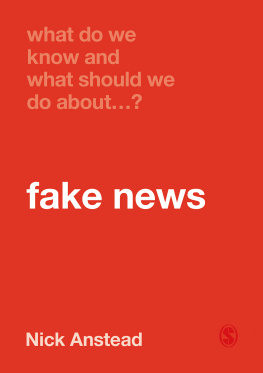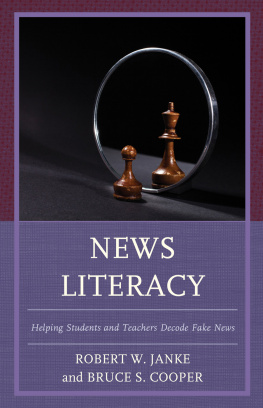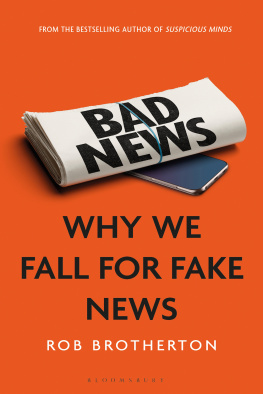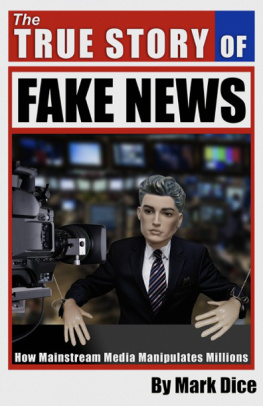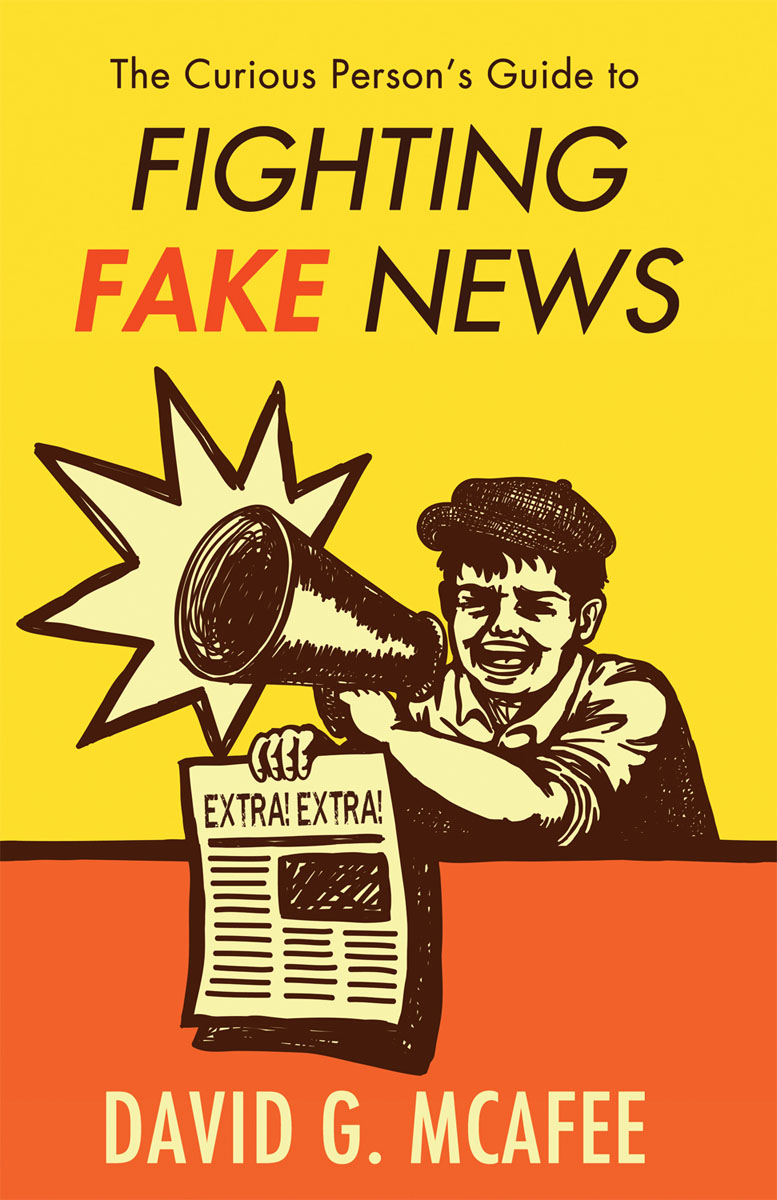

Pitchstone Publishing
Durham, North Carolina
www.pitchstonepublishing.com
Copyright 2020 by David G. McAfee
All rights reserved
Printed in the USA
10 9 8 7 6 5 4 3 2 1
Library of Congress Cataloging-in-Publication Data
Names: McAfee, David G., author.
Title: The curious persons guide to fighting fake news / David G. McAfee.
Description: Durham : Pitchstone Publishing, 2020. | Includes bibliographical references. | Summary: Journalist David G. McAfee documents the myriad definitions of fake news and its various incarnations throughout history, from ideologically motivated disinformation operations to commercially motivated misinformation campaigns, and he presents a number of practical and actionable suggestions for combating itProvided by publisher.
Identifiers: LCCN 2020021706 (print) | LCCN 2020021707 (ebook) | ISBN 9781634312066 (paperback) | ISBN 9781634312073 (ebook)
Subjects: LCSH: Fake newsUnited States. | Media literacyUnited States.
Classification: LCC PN4888.F35 M33 2020 (print) | LCC PN4888.F35 (ebook) | DDC 070.4dc23
LC record available at https://lccn.loc.gov/2020021706
LC ebook record available at https://lccn.loc.gov/2020021707
As we express our gratitude, we must never forget that the highest appreciation is not to utter words, but to live by them.
John F. Kennedy, U.S. president
Contents
Acknowledgments

This book is dedicated to Rae, my wife, editor, and best friend for all time, and to my amazing new friends, Heather Hernandez and James F. Wall Jr., who have helped make this book possible by continually supporting my work. Heather advocates for better lives through continuing education, and shes passionate about social justice, rights for immigrants, and celebrating diversity. James, who has a background in biological sciences, values scientific advancement, including fighting climate change and promoting the use of life-saving vaccines. Both James and Heather are dedicated opponents of dangerous pseudoscience.
Introduction: Can Journalism Really Accomplish Anything?

I still believe that if your aim is to change the world, journalism is a more immediate short-term weapon.
Sir Tom Stoppard, playwright
Its not very often that a simple conversation completely changes your mindset or truly inspires you. When that happens to me, I like to take advantage of it.
I had one such conversation while I was planning to write this book, and it caused me to change my direction for the work entirely. I was initially looking at the fake news problem as though it was caused by the readers, with journalists being innocent bystanders. After all, if theres no market for it, you can disincentivize fake news and at least reduce the volume of it greatly. Theres certainly some truth to this perspective, but nobody needs a book by a journalist talking down to everyone who doesnt respect the profession. Not just because its not palatable, but also because it doesnt paint an accurate portrait of reality.
Instead, the problem, and its origins, are much more complex than that. It took a younger but extremely mature individual calling me out on the subject of journalism and fake news to see that. I now understand that we are all culpable in the current fake news pandemic, and that we can all do our parts to help fix it. I also see that journalism itself has its own flaws, and that it must evolve along with every other industry as our technology changes and understanding of the world improves.
So, a simple conversation with a kid sparked a change that would ultimately set these pages ablaze. The book youre reading went from a lecture by a reporter to everyone else, to a discussion about where we can go in this world if we actually work together to fight the misinformation mayhem all because of a dialogue. Heres how that conversation went:
In April 2017, I was approached by a young man as I was signing books at the Los Angeles Times Festival of Books at the University of Southern California (USC). He appeared to be about 12 years old, and he was definitely confrontational, but he was also extremely well spoken and obviously incredibly intelligent. He started off by criticizing journalism and the media, saying modern-day news reports only reinforce what we already believe, which is often the case, unfortunately. He also made the very correct point that many news agencies care more about clicks and controversy than they do about spreading good information, which has been a problem for as long as I can remember.
He and I had a spirited conversation in which I explained to him my position that good journalism does the opposite of what he was saying. True investigative reporting is all about the truth, and passing on quality information to those who may not have it or be able to obtain it for themselves. It takes your preconceived notions and dismantles them using facts, logic, and evidence. Its not an easy process, I said, but when reporters do good work, they can challenge what they already believedas well as the beliefs of readers.
I told him that hes right to point out the shortage of proper journalism in modern media. In fact, I agreed with him that irresponsible reporting is perhaps at an all-time high, and that it was indeed a true crisis. But despite that, quality journalism still exists, and we should seek it out and encourage it at all costs. All other options ensure that real news is crushed under the weight of bullshit, and theres no telling where that could lead.
Getting rid of biases and challenging your own bad thinking is a key to good journalism, and its also rarely seen in todays media, I added. But if we write off journalism entirely, and accept that the landscape will forever be littered with so-called fake news that distracts from the facts, we will never be able to reap the rewards of intelligent reporting. Specifically, we wont be able to solve some of the big problems that real journalistswho investigate for the sake of finding the truthcan.
The good journalism needs to be able to happen, and when people write off journalism in general, saying it cant solve anything, it impedes that. It makes people less likely to try, I told him.
The young man said he appreciated my points, and admitted that his own biases may have been informing his views. He noted that hes frustrated as a kid living in the current era who hasnt really seen much great journalism.
I said I understood his concerns, and that I actually felt the same way much of the time, and we started to discuss the future of journalism. But I told him that it is important to look at the past as well. If we look at the history of the United States, and even the world, we can find many major developments that only came through investigative writing. I told him that horrible actions, put forth by governments and individuals alike, have been exposed thanks to people who ask good questions. And thats most of what journalism really is: asking good questions and fact-checking the answers.
Take Nellie Bly, for instance. She was one of the first American investigative journalists, and she went undercover to expose how mentally ill people were being abused at the New York City Lunatic Asylum (Markel, 2018). Bly, whose real name was Elizabeth Cochrane Seaman, changed how we look at mental health institutions and brought real and lasting positive changes to the industry. Journalists also helped reveal corruption within President Richard Nixons administration during the height of the infamous Watergate scandal (Feldstein, 2016), exposed atrocities surrounding the Vietnam war, and much, much more.
Next page
